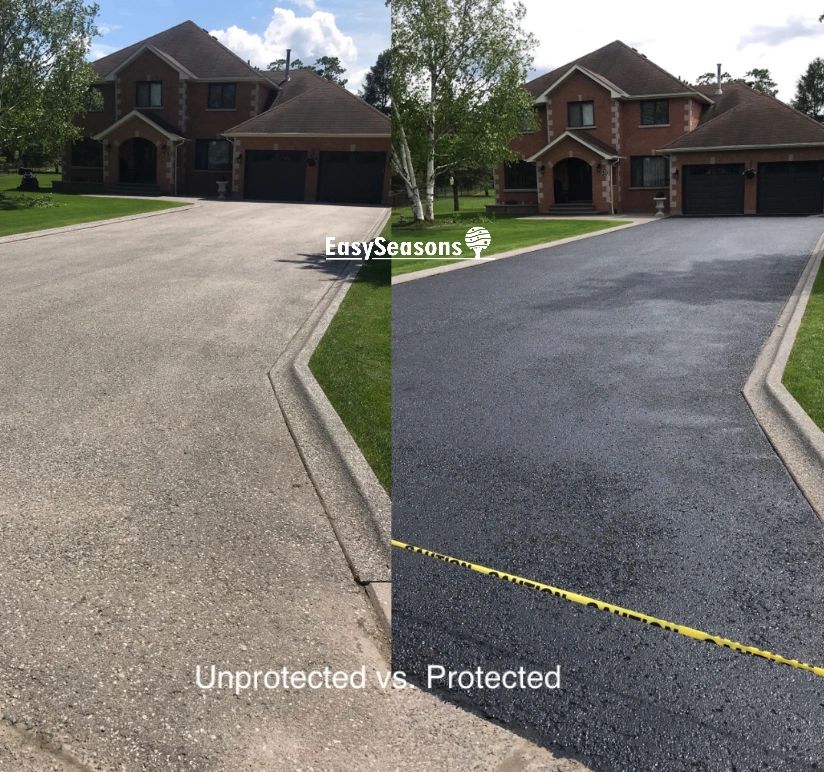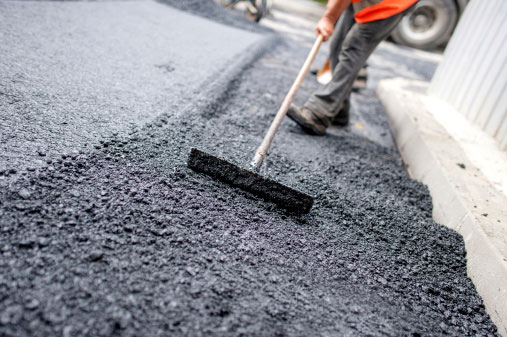Boost Durability with Cold Mix Asphalt: Specialist Sealing Solutions
Boost Durability with Cold Mix Asphalt: Specialist Sealing Solutions
Blog Article
Cold Mix Asphalt Vs. Hot Mix Asphalt: Which Is Right for You?

Make-up Differences
Cold mix and hot mix asphalts vary significantly in their make-up, with distinct attributes that impact their efficiency and applications. Cold mix asphalt is generated by emulsifying the asphalt binder with water and an emulsifying agent before mixing it with accumulation. This approach permits the asphalt to be convenient at lower temperatures, making it ideal for short-term repair services and for usage in colder climate condition. Warm mix asphalt, on the other hand, is made at heats, normally in between 300-350 ° F, which aids to accomplish much better compaction and an extra sturdy last product. The warm mix asphalt manufacturing procedure entails heating the accumulation and asphalt binder individually prior to incorporating them at the asphalt plant.
Additionally, chilly mix asphalt has a tendency to be less dense and a lot more adaptable than warm mix asphalt. This versatility makes it much better matched for locations with greater degrees of motion, such as driveways or roadways with rush hour. On the other hand, warm mix asphalt is recognized for its high resilience and resistance to rutting and breaking, making it a preferred choice for freeways and high-traffic roads where durability is essential.
Installation Refine Variations
The procedure of mounting chilly mix and hot mix asphalt displays noteworthy variations in their treatments and requirements. Cold mix asphalt, being a more flexible product, can be applied directly from the bag or container onto the fracture or harmed area. It requires marginal preparation work, such as cleaning up the location and condensing the cold blend with hand tools. This makes it a practical option for fast and short-lived solutions. In contrast, warm mix asphalt necessitates a much more sophisticated installation procedure. It involves heating the combination to high temperature levels prior to laying it down on a correctly prepared base. The preparation includes condensing the base, using a tack layer, and utilizing heavy equipment like pavers and compactors for a resilient and smooth coating. Due to the home heating needs, warm mix asphalt setups are normally brought out by specialists with specialized devices, making sure a more long-term and structurally audio result.
Longevity and Longevity Elements
When taking into consideration asphalt alternatives, resilience and long life are vital variables to evaluate for lasting pavement performance. Hot mix asphalt (HMA) is recognized for its remarkable resilience and longevity. The heats during the laying and blending procedure enable better compaction, leading to a denser and stronger sidewalk framework. This causes HMA being more resistant to rush hour tons, severe climate problems, and the results of maturing contrasted to chilly mix asphalt (CMA)
In terms of durability, HMA usually surpasses CMA due to its superior toughness and resistance properties. HMA sidewalks have a longer life span, calling for much less frequent fixings and maintenance, which can convert to cost financial savings in the future. Furthermore, HMA pavements are much more easily adjustable to meet certain project requirements, further improving their resilience.
Price Considerations
Taking into consideration the monetary effects is an important facet when evaluating the selection between hot mix asphalt (HMA) and cool mix asphalt (CMA) for sidewalk projects. While the preliminary price of hot mix asphalt is normally greater than that of blog here chilly mix asphalt, HMA frequently see this website supplies an extra cost-effective option in the lengthy run due to its remarkable durability and longevity. HMA is known for its capability to hold up against heavy web traffic tons and severe climate condition, minimizing the requirement for constant fixings and maintenance. On the other hand, cold mix asphalt is a lot more inexpensive in advance however might need even more constant patching and resurfacing, causing higher upkeep prices with time.
In enhancement to product expenses, it's necessary to take into consideration the expenditures related to setup and maintenance when contrasting HMA and CMA. HMA usually needs specific equipment and skilled labor for correct installment, which can affect overall job prices. Conversely, CMA is less complicated to deal with and can typically be applied using simpler strategies, possibly lowering installment costs. Eventually, the decision in between HMA and CMA should think about not just the preliminary cost yet additionally the long-term monetary effects to establish the most affordable alternative for the specific sidewalk project.
Environmental Effect Contrast
Contrast of the environmental impacts between hot mix asphalt (HMA) and cold mix asphalt (CMA) reveals unique distinctions in sustainability methods. HMA production calls for high temperature levels, leading to increased energy consumption and greenhouse gas emissions.
Additionally, the use of CMA frequently includes recycling existing asphalt sidewalk, advertising resource conservation and decreasing the quantity of waste sent to garbage dumps. By deciding for CMA over HMA, road construction tasks can contribute positively to ecological preservation initiatives.
Conclusion
Finally, the option in between cool mix asphalt (CMA) and warm mix asphalt (HMA) relies on different elements such as structure, setup procedure, longevity, longevity, cost, and environmental influence. asphalt repair. While CMA offers a fast and cost-effective option for minor repair work, HMA makes certain remarkable toughness and durability for rush hour areas. Think about these elements very carefully to establish which sort of asphalt is the right choice for your paving needs

Taking into consideration the economic effects is an important facet when assessing the selection between hot mix asphalt (HMA) and cold mix asphalt (CMA) for sidewalk jobs. While the initial cost of hot mix asphalt is commonly higher than that of chilly mix asphalt, HMA usually provides an extra cost-effective service in the lengthy run due to its premium toughness and long life. asphalt patch repair.Contrast of the ecological impacts between hot mix asphalt (HMA) and cool mix asphalt (CMA) reveals distinct differences in sustainability methods.In final thought, the selection between cold mix asphalt (CMA) and hot mix asphalt (HMA) depends on different factors such as composition, setup process, longevity, long life, cost, and ecological impact
Report this page